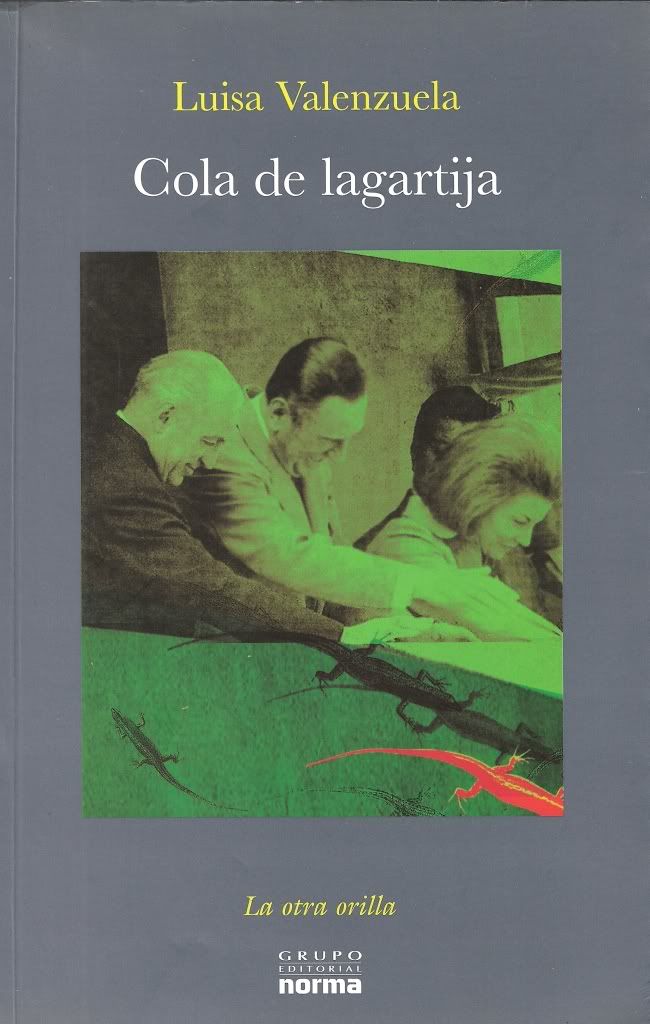
When Juan Peron returned to the Argentine presidency for the last time in 1974, he brought along two intimates who would go on to create some trouble. The first was his third wife Isabela, who would ascend to the presidency after his death. The second was Jose Lopez Rega, a character so odd it seems hard to believe he was not invented by Arlt or Borges. Rega was fascinated with occult and mystic arts, including Umbanda (like Santeria or Voodoo) and astrology. His interests earned him the nickname El Brujo, not inappropriate given the Rasputin-like hold he had on Peron and later Isabela. It was under Rega that Dirty War began, which was run out of the Office of Social Welfare under the auspices of the triple-A. (Argentine Anticommunist Alliance)
Cola de lagartija is based loosely on Lopez Rega, parting ways with the historical facts of Lopez Rega to create a surreal and disturbing meditation on violence and power. After the fall of Isabela's government, El Brujo heads to his childhood home of Laguna Negra in northern Argentina with his followers. Here he organizes new rituals of blood and sacrifice, and stages a very twisted orgy to which he invites prominent members of Argentine society.
Even in internal exile, he is dangerous enough to inspire enemies, among them the ruling junta, a revolutionary, and an author working on El Brujo's biography. The revolutionary and the author have a brief relationship, during which the revolutionary asks the author to finish her book by killing off El Brujo. But can she really pull it off in such a way as to kill the original?
El Brujo soon finds a new enemy in the mayor of the town of Capivari and its little newspaper. He takes over the town and the newspaper, changing the emphasis of the latter to occult themes. This inspires in him the plans for a new ritual, an immaculate conception which will cleanse Argentina in a river of blood.
I was expecting a touch of the strange, perhaps even some magic realism, when I started this book, as can only be expected from a story based on an already strange individual. But the story is strikingly surreal, often disturbing or funny, presenting an exaggerated look at the relationship between power and violence, and the role of the journalist or writer in responding to the terrible.



No comments:
Post a Comment